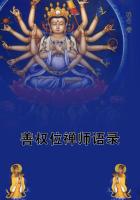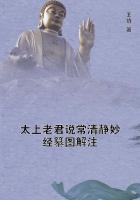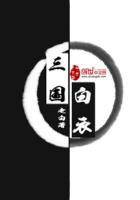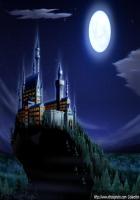Taking the many changes of any given spot of the earth's surface, from sea to land and from land to sea, as an established fact, we cannot refrain from asking ourselves how these changes have occurred. And when we have explained them--as they must be explained--by the alternate slow movements of elevation and depression which have affected the crust of the earth, we go still further back, and ask, Why these movements?
I am not certain that any one can give you a satisfactory answer to that question. Assuredly I cannot. All that can be said, for certain, is, that such movements are part of the ordinary course of nature, inasmuch as they are going on at the present time. Direct proof may be given, that some parts of the land of the northern hemisphere are at this moment insensibly rising and others insensibly sinking; and there is indirect, but perfectly satisfactory, proof, that an enormous area now covered by the Pacific has been deepened thousands of feet, since the present inhabitants of that sea came into existence.
Thus there is not a shadow of a reason for believing that the physical changes of the globe, in past times have been effected by other than natural causes.
Is there any more reason for believing that the concomitant modifications in the forms of the living inhabitants of the globe have been brought about in other ways?
Before attempting to answer this question, let us try to form a distinct mental picture of what has happened, in some special case.
The crocodiles are animals which, as a group, have a very vast antiquity. They abounded ages before the chalk was deposited; they throng the rivers in warm climates, at the present day. There is a difference in the form of the joints of the back-bone, and in some minor particulars, between the crocodiles of the present epoch and those which lived before the chalk; but in the cretaceous epoch, as I have already mentioned, the crocodiles had assumed the modern type of structure. Notwithstanding this, the crocodiles of the chalk are not identically the same as those which lived in the times called "older tertiary," which succeeded the cretaceous epoch; and the crocodiles of the older tertiaries are not identical with those of the newer tertiaries, nor are these identical with existing forms. I leave open the question whether particular species may have lived on from epoch to epoch. But each epoch has had its peculiar crocodiles; though all, since the chalk, have belonged to the modern type, and differ simply in their proportions, and in such structural particulars as are discernible only to trained eyes.
How is the existence of this long succession of different species of crocodiles to be accounted for?
Only two suppositions seem to be open to us--Either each species of crocodile has been specially created, or it has arisen out of some pre-existing form by the operation of natural causes.
Choose your hypothesis; I have chosen mine. I can find no warranty for believing in the distinct creation of a score of successive species of crocodiles in the course of countless ages of time.
Science gives no countenance to such a wild fancy; nor can even the perverse ingenuity of a commentator pretend to discover this sense, in the simple words in which the writer of Genesis records the proceedings of the fifth and sixth days of the Creation.
On the other hand, I see no good reason for doubting the necessary alternative, that all these varied species have been evolved from pre-existing crocodilian forms, by the operation of causes as completely a part of the common order of nature, as those which have effected the changes of the inorganic world.
Few will venture to affirm that the reasoning which applies to crocodiles loses its force among other animals, or among plants.
If one series of species has come into existence by the operation of natural causes, it seems folly to deny that all may have arisen in the same way.
A small beginning has led us to a great ending. If I were to put the bit of chalk with which we started into the hot but obscure flame of burning hydrogen, it would presently shine like the sun.
It seems to me that this physical metamorphosis is no false image of what has been the result of our subjecting it to a jet of fervent, though nowise brilliant, thought to-night. It has become luminous, and its clear rays, penetrating the abyss of the remote past, have brought within our ken some stages of the evolution of the earth. And in the shifting "without haste, but without rest"[75]
of the land and sea, as in the endless variation of the forms assumed by living beings, we have observed nothing but the natural product of the forces originally possessed by the substance of the universe.

